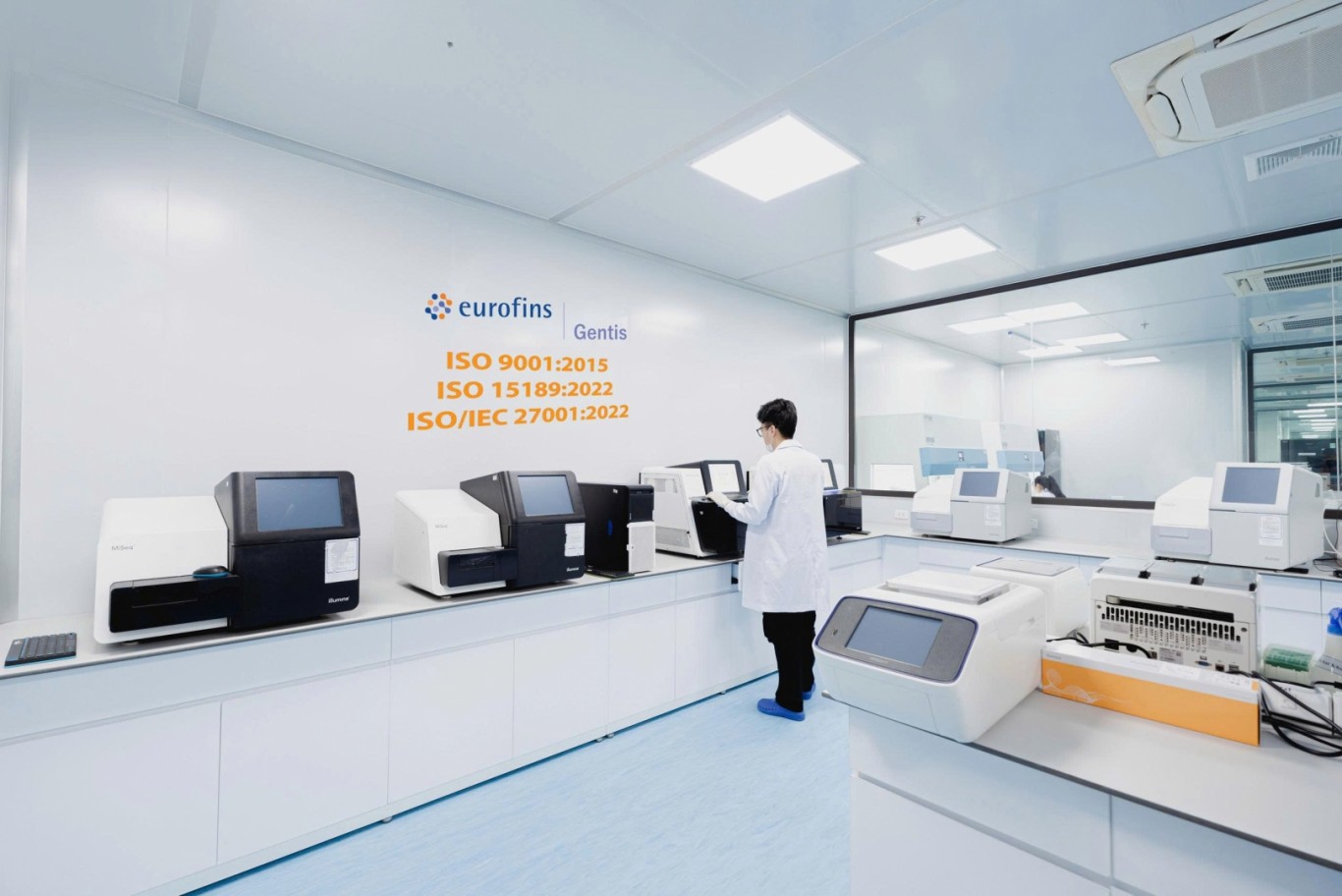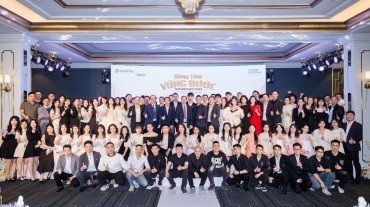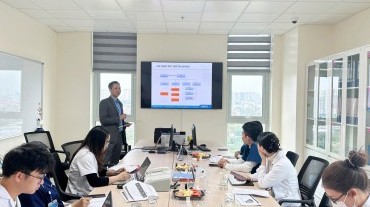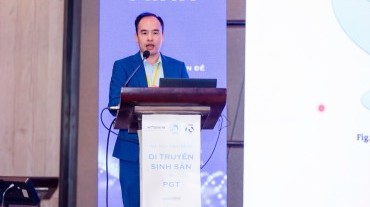The event featured prominent speakers and chairpersons in the fields of Assisted Reproductive Technology (ART) and Medical Genetics, including Assoc. Prof. Dr. Trinh The Son (Military Medical University), Assoc. Prof. Dr. Nguyen Xuan Hoi (National Obstetrics and Gynecology Hospital), MSc. Dr. Nguyen Duy Phuong (Hanoi General Hospital), Specialist Dr. Nguyen Van Thong (Hung Vuong Hospital), Specialist Dr. Nguyen Thanh Trung (Hanoi Andrology and Infertility Hospital), MSc. Vu Dinh Chat (An Thinh Obstetrics and Gynecology Hospital), and MSc. Nguyen Quang Vinh (GENTIS).
In addition, the event attracted a large number of clinical doctors, genetic experts, embryologists, and lab specialists from hospitals and assisted reproductive centers nationwide. Notably, Genetic Counseling Talks No. 2 was honored by the presence of Prof. Dr. Nguyen Dinh Tao (President of the Hanoi Reproductive Health Society), Assoc. Prof. Dr. Tran Duc Phan (President of the Vietnam Medical Genetics Association), and Assoc. Prof. Dr. Ho Sy Hung (Deputy Director of the National Assisted Reproductive Center).
Opening the program, Assoc. Prof. Dr. Trinh The Son shared: “Mosaic embryo transfer is a topic of great interest in genetics and assisted reproduction, not only in Vietnam but also globally. Currently, doctors performing mosaic embryo transfers primarily follow the research/guidelines of various organizations such as ASRM, ESHRE, PGDIS, ISRG, etc. The number of mosaic embryos transferred has increased significantly. Therefore, standardizing the methods for mosaic embryo transfer, selecting mosaic embryos, and monitoring post-transfer outcomes are crucial.”
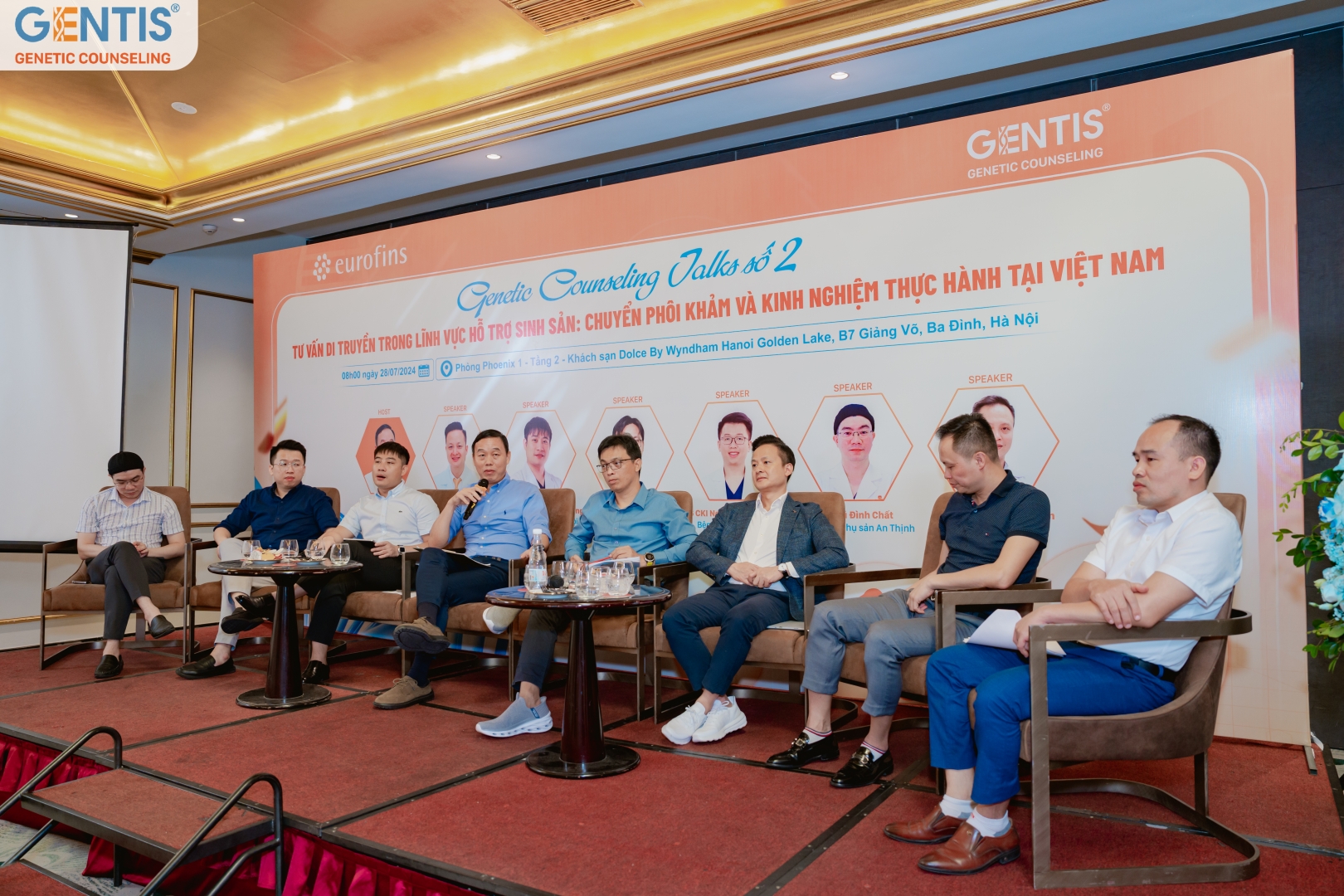
“At present, many associations have issued guidelines on mosaic embryo transfer, such as ESHRE and PGDIS. It is evident that these associations are focused on mosaic embryos and related issues, such as the degree of mosaicism, whether to transfers whole chromosome mosaics or segmental mosaics.
At the ESHRE 2024 Conference, mosaic embryo transfer was a hot topic with numerous reports and discussions. A study involving 3000 mosaic embryos showed that lower levels of mosaicism resulted in better neonatal outcomes, pregnancy processes, and implantation rates compared to high-level mosaics. However, outcomes for mosaic embryos were generally lower than those for normal embryos.
Additionally, recommendations at ESHRE 2024 indicated that embryos with over 50% mosaicism could be transferred. Studies also showed that lower levels of mosaicism correlated with better pregnancy and neonatal outcomes. Furthermore, genetic counseling is a critical step in the mosaic embryo transfer process,” said Assoc. Prof. Dr. Nguyen Xuan Hoi.
“Biological factors and technical aspects can cause mosaicism. In embryology labs, non-standardized techniques, biopsy techniques, and cell washing techniques can affect the mosaicism rate. In genetic labs, biases in gene amplification, contamination during library preparation, and initial analysis can cause mosaicism. Therefore, it is essential to establish standardized procedures between embryology and genetic labs to ensure consistent and appropriate mosaicism rates, avoid wasting embryos, and not increase the mosaicism process,” shared MSc. Vu Dinh Chat (An Thinh Obstetrics and Gynecology Hospital).

“Therefore, controlling the quality of testing is crucial. This helps control the rate of mosaic embryos and set appropriate mosaicism reporting thresholds. GENTIS has been and will continue to enhance the resolution of pre-implantation genetic testing to detect more diseases in embryos. Currently, with high-resolution NGS sequencing and specialized bioinformatics software, the PGT-Max 1 test can detect microdeletions as small as 2Mb on 24 chromosomes,” said MSc. Nguyen Quang Vinh (GENTIS).
Speaking about the practical experience of mosaic embryo transfer at Hanoi General Hospital, MSc. Dr. Nguyen Duy Phuong shared, “When receiving pre-implantation genetic testing results indicating mosaic embryos, the challenge for clinical doctors is to explain to patients what mosaic embryos are, whether they can be transferred, and how to monitor the pregnancy if transferred. In practice, monitoring a mosaic embryo pregnancy is more challenging than a normal embryo pregnancy. In addition to routine pregnancy check-ups, patients should have a NIPT test at the 10th week of pregnancy to screen for congenital defects. After that, an amniocentesis is advised at the 16th week, but the decision to proceed depends on the patient.”
“Hanoi Andrology and Infertility Hospital started mosaic embryo transfers in 2020 following PGDIS and ESHRE guidelines. Recently, the hospital has collaborated with GENTIS to conduct scientific research on 'Clinical Outcomes of Patients Transferring Mosaic Embryos.' The overall live birth rate was about 42%, showing that patients without euploid embryos for transfer can consider transferring mosaic embryos,” said Specialist Dr. Nguyen Thanh Trung.
“In practice, mosaic embryo transfer involves clinical, lab testing, and genetic counseling factors. These components are crucial in deciding mosaic embryo transfers and advising patients on the outcomes. We must agree on mosaic embryo transfers and sign consent forms to manage the follow-up process effectively. Therefore, when transferring mosaic embryos, we prioritize the lowest mosaic levels, followed by low levels. Only if patients do not allow mosaic embryo transfers, we will proceed with the next cycle to select normal embryos. Currently, international associations do not recommend discarding mosaic embryos but advise transferring them with patient consent and signed agreements,” added Assoc. Prof. Hoi.
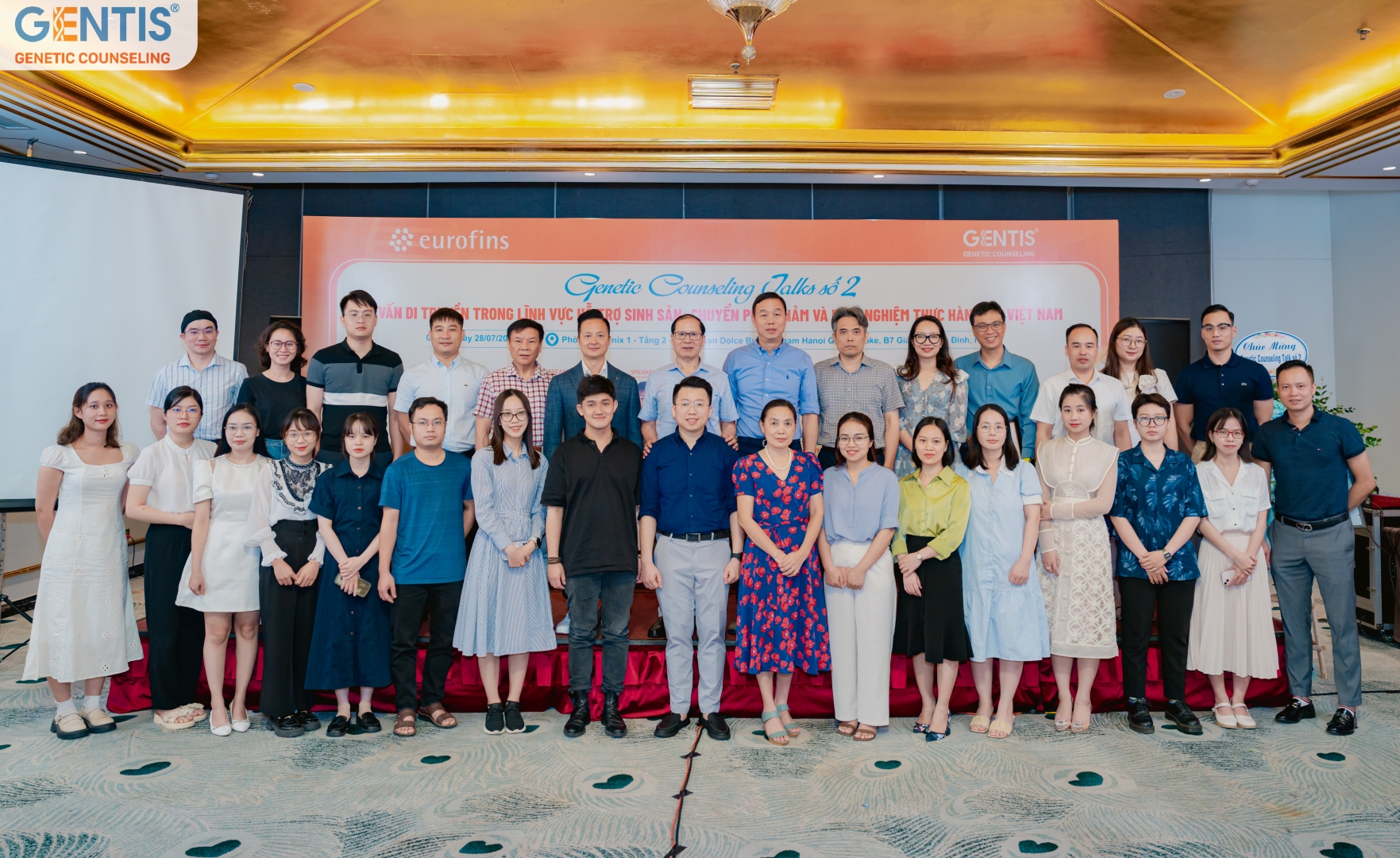
It is evident that recommendations and guidelines for mosaic embryo transfers from global medical organizations are based on genetic factors. Speaking about the significance of genetic counseling in mosaic embryo transfers, Specialist Dr. Nguyen Van Thong (Hung Vuong Hospital) said, “Genetic doctors need to provide thorough counseling to patients to help couples understand the potential risks of transferring mosaic embryos, prioritize mosaic embryo selection, and how to monitor pre- and postnatal conditions. Moreover, psychological support is crucial to help couples reduce anxiety and stress during this process.”
The Genetic Counseling Talks No. 2 with the theme "Genetic Counseling in Assisted Reproductive Technology: Mosaic Embryo Transfer and Practical Experiences in Vietnam" was a great success. GENTIS Genetic Counseling Center sincerely thanks Assoc. Prof. Dr. Trinh The Son and the speakers, Prof. Dr. Nguyen Dinh Tao (President of the Hanoi Reproductive Health Society), Assoc. Prof. Dr. Tran Duc Phan (President of the Vietnam Medical Genetics Association), Assoc. Prof. Dr. Ho Sy Hung (Deputy Director of the National Assisted Reproductive Center), and all participants.
We look forward to welcoming doctors and specialists to future events organized by the GENTIS Genetic Counseling Center!

